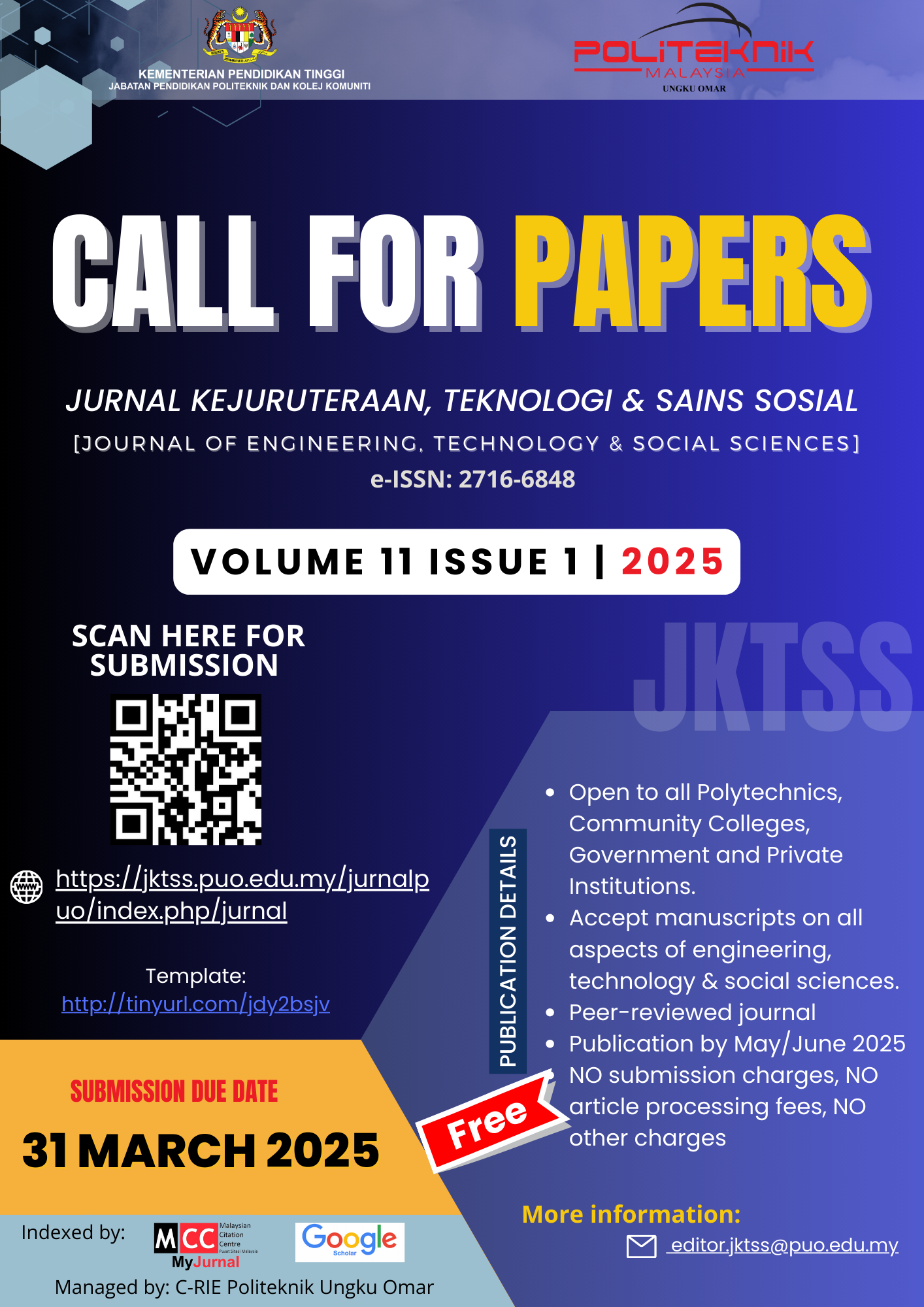ARTIFICIAL NEUTRAL NETWORK MODEL IN ESTIMATING WATER QUALITY INDEX (WQI) FOR UPSTREAM WATER INTAKE IN MALAYSIA
Keywords:
water pollution; water quality index (WQI); artificial neutral networkAbstract
This study addresses water pollution in Malaysia, a critical issue impacting water resource viability, the economy, human health, and ecosystems. Accurate environmental quality predictions are essential for effective management and proactive risk mitigation. This paper investigates the use of Artificial Neural Network (ANN) models to predict the Water Quality Index (WQI) for Malaysian rivers. The ANN model utilizes Biochemical Oxygen Demand (BOD), Ammoniacal Nitrogen (AN), and Suspended Solids (SS) as input layers and WQI as the output layer. The model was trained and validated using 65 river sample data points collected from 2014 to 2021 by the Environmental Quality Data. Model 11 demonstrated the best performance, exhibiting a correlation coefficient of 1.0, low Mean Squared Error (MSE) across training, test, and validation subsets, and a Root Mean Squared Error (RMSE) of 0.00. The predicted WQI values also showed a strong agreement with actual data, with a percentage error of less than 4%. These results confirm the effectiveness and suitability of ANN models for forecasting WQI values for upstream water intake, making them appropriate for use by environmental monitoring units in simulations.










